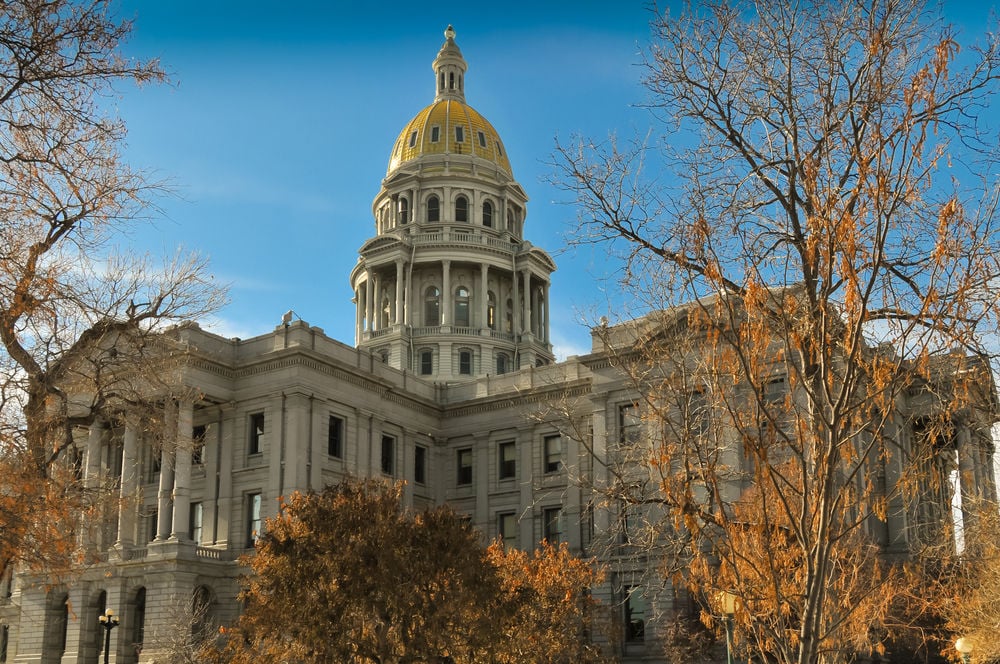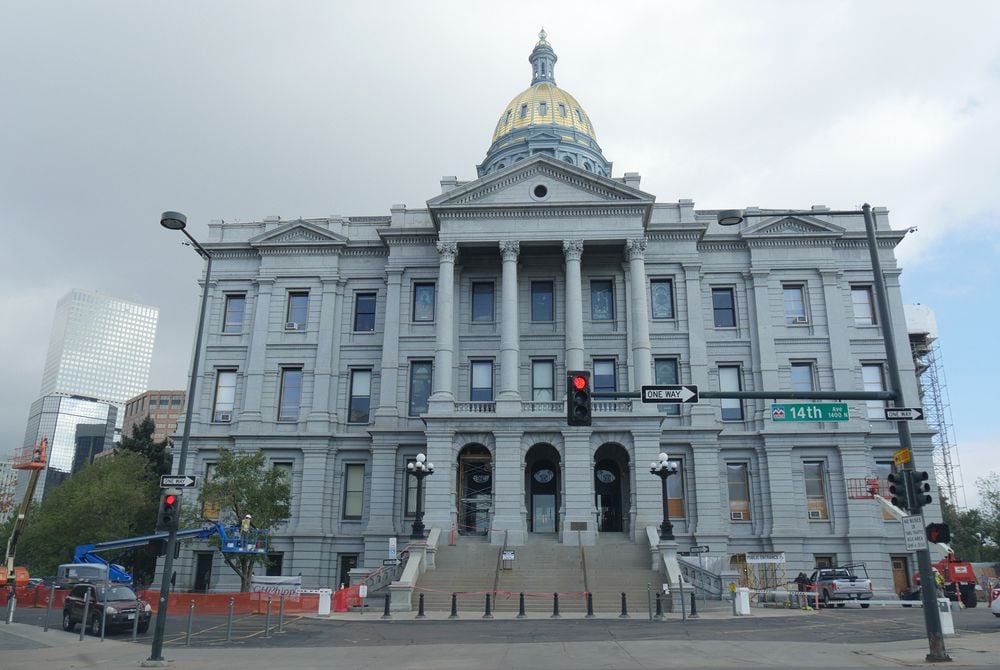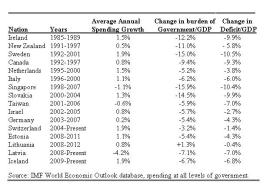 In this Jan. 7 photo, traffic backs up on Interstate 70 in Colorado, a familiar scene on the main highway connecting Denver to the mountains. (AP Photo/Thomas Peipert)
In this Jan. 7 photo, traffic backs up on Interstate 70 in Colorado, a familiar scene on the main highway connecting Denver to the mountains. (AP Photo/Thomas Peipert)(Re: “Only one ballot issue can tackle Colorado’s transportation challenges,” Aug. 10.)
Let’s fix our roads without a massive 21 percent increase of our state sales tax. The collaborative cronyists’ proposal, “Let’s Go Colorado” — a huge tax increase, allegedly for transportation — hurts everyday, hardworking Coloradans who are chasing their American dream. If the politicians, bureaucrats, governmental appointees and interested parties behind the proposal, get their way, we’ll pay an additional 21 percent in state sales tax on basic items that make our lives better such as diapers, toilet paper and school supplies.
When enjoying a craft brew with colleagues, buying a good book or meeting friends for dinner, we would pay an additional 21 percent in state sales tax. And those new school clothes, soccer balls, books and dance shoes for the kids? You got it! An additional 21 percent in state sales tax. If passed, Colorado would be the 13th-highest state in the country for taxes at the register.
Politicians, bureaucrats, governmental appointees and interested parties are selling this new tax as only cents on the dollar. Here’s the reality: Currently, Colorado state sales tax sits at 2.9 percent. Let’s Go Colorado would increase the state sales tax to 3.52 percent, which is a significant 21 percent increase. And it’s a regressive tax that disproportionately hurts people in the toughest situations and who trying to get ahead, such as the poor, vulnerable, elderly and our young people.
There is a better way to get Colorado going. “Fix Our Damn Roads” is a ballot initiative that directs the state legislature to dedicate a portion of Colorado’s growing revenue to fix our roads and bridges, without increasing taxes. Colorado has the money. Our revenue continues to increase. Colorado is expected to collect an additional $1.29 billion next fiscal year, thanks to federal tax cuts, economic growth and a resurgent oil and gas industry. Colorado has the money.
Gas taxes were created as a user tax. The tax was charged at the pump and the tax revenue was to be used for our roads and bridges. However, the state has been spending our gas tax money on pet projects and other stuff. Per an Institute of Energy Research report, 16 percent of federal gas tax money is siphoned off for non-road and bridge projects such as transit, pedestrian and bicycle paths and facilities, recreation trails, landscaping, environmental mitigation and transportation museums. If the money would have gone to where it was promised and purposed, our roads and bridges would be in good condition and repair.
Let’s compare the two competing transportation ballot questions for this November. Fix Our Damn Roads: (1) Fixes our roads and bridges without a tax increase; (2) designates exactly where the money will be spent; (3) names the projects (From CDOT’S Tier One list) in the ballot measure; (4) honors the will of the people and TABOR, the Taxpayer’s Bill of Rights; (5) does not include carve-outs for special interests, and (6) bonds for $3.5 billion with a repayment cost, including interest, of $5.2 billion to fix our roads and bridges.
Let’s Go Colorado: (1) Proposes a massive 21 percent state sales tax increase; (2) provides a goody bag of money for politicians, bureaucrats, lobbyists and interested parties to spend on pet projects; (3) lacks transparency and accountability to everyday, hardworking Coloradans, i.e. there are no specific projects named in the ballot measure; (4) includes language that money collected above the TABOR limits is not returned to the people; (5) includes an exemption for aviation and jet fuels, and (6) bonds for $6 billion with a repayment cost, including interest, of $9.4 billion. Fix Our Damn Roads saves hardworking Coloradans at least $4.2 billion.
We all agree that our roads and bridges could use a little love. Together, we can do this. It’s time to Fix Our Damn Roads and let’s do it without a massive tax increase!
Kim Monson
Lone Tree
The author is a former city councilwoman for Lone Tree and co-hosts the “Americhicks — Molly Vogt & Kim Monson” radio show on KLZ 560 AM and the “WWII Project” on KEZW 1430.
http://coloradopolitics.com/in-response-we-dont-need-a-tax-hike-to-fix-colorados-highways/



 The anti-TABOR, consent-hating, government-expanding, nannyist bureaucrat will interview and probably lecture our esteemed panelists of limited government, free market activists. What could go wrong?! It’s bound to be entertaining and educational!
The anti-TABOR, consent-hating, government-expanding, nannyist bureaucrat will interview and probably lecture our esteemed panelists of limited government, free market activists. What could go wrong?! It’s bound to be entertaining and educational!
